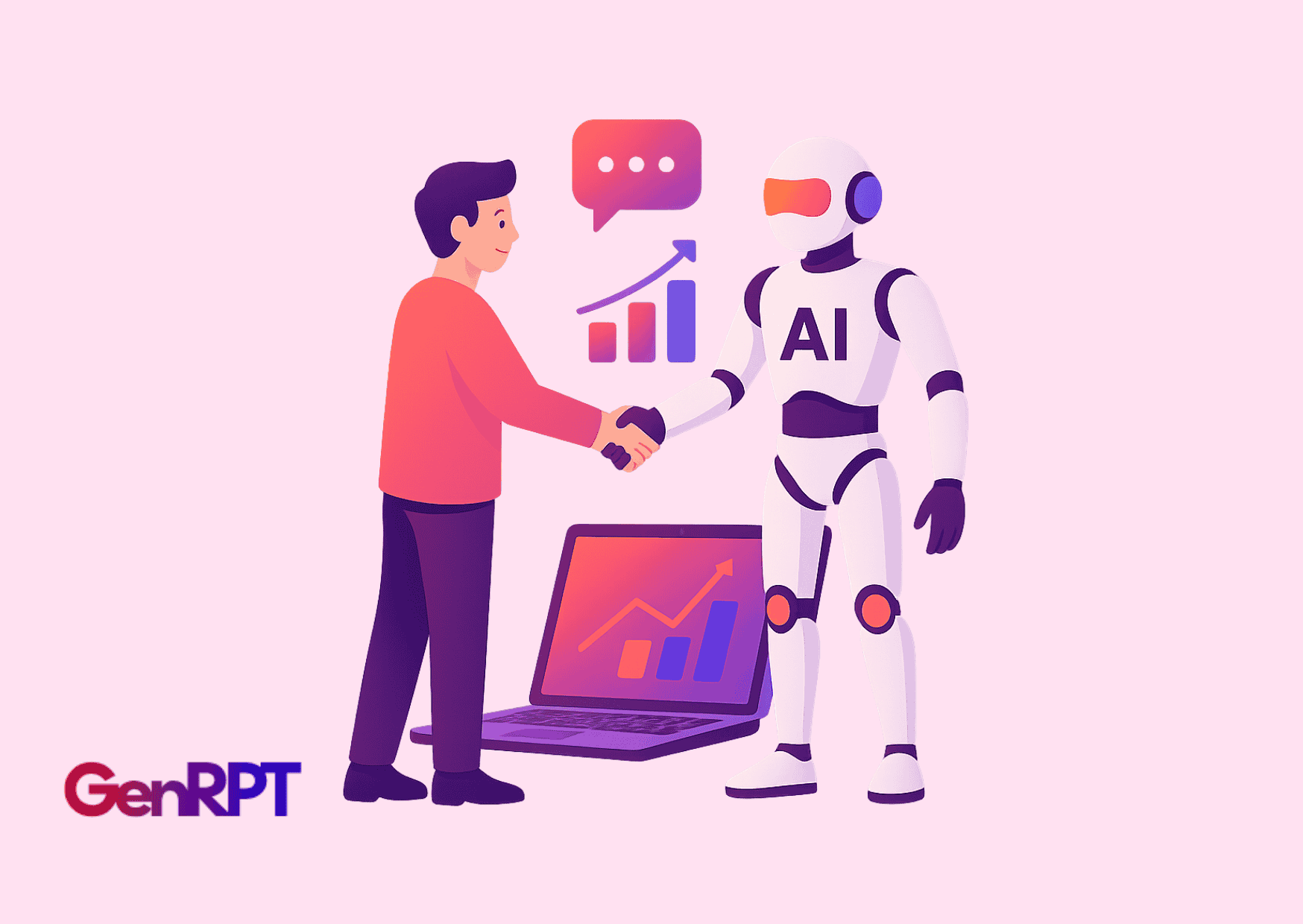
AI for Governance: Building Transparency in Corporate Reporting
November 17, 2025 | By GenRPT
Corporate trust is built on clear and reliable reporting. Investors, regulators, and employees want to understand how a company works and how it performs. Good governance depends on transparency. Artificial Intelligence can make this process stronger by improving how organizations collect, verify, and present information. AI for governance is not only a trend. It is a new way to build confidence in corporate reporting.
Modern companies manage large amounts of financial, operational, and compliance data. Annual reports, audit summaries, risk registers, and board decisions all need careful review. Traditional reporting methods often rely on manual work, spreadsheets, and long review cycles. This increases the chances of errors and missing details. AI can reduce these problems by supporting accurate data analysis and easier reporting.
Why transparency matters in governance
Transparency means stakeholders can see the correct information about a company. It supports honest communication and reduces the risk of fraud or misleading reports. Strong reporting helps:
1. Investors make informed decisions
2. Regulators confirm compliance
3. Employees trust leadership
4. Customers see responsible practices
5. Boards guide long-term strategy
When reporting is weak, trust declines. Incomplete data, slow reporting cycles, and hidden risks can damage the reputation of an organization. AI can improve the clarity and reliability of reporting systems.
How AI supports corporate reporting
AI helps governance teams manage data and identify what matters. It brings speed and structure to reporting. The key advantages include:
1. Automated data collection
AI systems can read financial records, audit documents, emails, and policy files. Natural language processing (NLP) and data mining tools can pull information from many sources. This reduces manual work and ensures reports are based on complete data.
2. Error detection and quality checks
Machine learning models can detect inconsistencies and unusual patterns in reports. They can highlight missing figures, duplicate entries, or conflicting explanations. This helps teams correct issues early and reduces risk during external audits.
3. Better risk analysis
Corporate reports often include risk assessments. AI can support risk scoring by analyzing trends, external market signals, and past incidents. It can help identify financial, operational, environmental, and governance risks.
4. Policy and compliance monitoring
Governance reporting includes regulatory requirements and internal policy checks. AI can track changes in policies and legal frameworks. It helps compliance teams stay updated and prepare accurate documentation.
5. Faster reporting cycles
AI speeds up the preparation of annual reports, sustainability disclosures, management reviews, and board updates. This gives leaders more time to interpret information instead of collecting it.
AI use cases in corporate governance
AI has a wide range of applications that help build transparent reporting structures.
AI in financial reporting
AI can analyse revenue figures, cost structures, cash flows, and budgets. It supports forecasting and helps prepare financial statements that reflect real performance.
AI in sustainability reporting
Companies report their environmental and social impact. AI can collect data on carbon emissions, waste management, supply chain conditions, and community programs. It ensures reports follow global standards and include accurate metrics.
AI in audit support
Internal and external audits benefit from AI as well. AI helps auditors review records faster and focus on high-risk areas. It provides clear evidence trails and supports documentation for audit readiness.
AI in risk and compliance reporting
AI supports compliance with laws, industry regulations, and codes of conduct. It monitors activities and alerts teams when reporting gaps or violations appear.
AI for board and executive dashboards
AI can turn large data sets into visual dashboards. Board members can explore real-time updates on performance, integrity concerns, and governance actions. This leads to better strategic decisions.
Challenges in implementing AI for governance
AI brings many benefits, but organizations must also address challenges.
Good leadership, strong data management, and clear policies help solve these issues.
The future of AI in corporate reporting
AI will play a larger role in governance. Reporting will move toward real-time updates. Intelligent agents will support internal audit, financial reviews, and sustainability disclosures. Reports will be more interactive and easier to understand.
Future developments may include:
1. Continuous and automated audit systems
2. Voice and text interfaces for corporate policies
3. Predictive compliance alerts
4. AI-supported board governance tools
5. Unified reporting across finance, risk, and sustainability
Companies that adopt AI early will have stronger reporting and better trust from investors and global markets.
Conclusion
Corporate reporting is a foundation of trust. Strong governance requires accurate information. AI helps organizations build transparency, improve audit readiness, and reduce risk in reporting. With reliable tools for data analysis, compliance monitoring, and risk assessment, AI can transform governance into a more open and responsible process.
The goal is not to replace human judgment. The goal is to help leadership make better decisions with clear, verified, and structured information. AI for governance brings a future where companies report with confidence and stakeholders rely on transparent insights.

